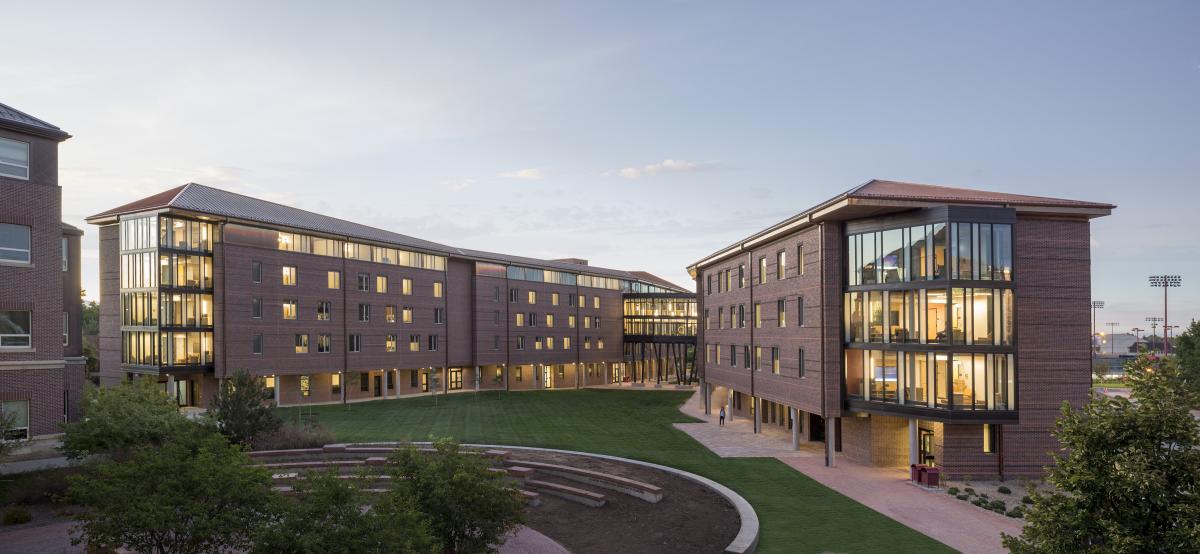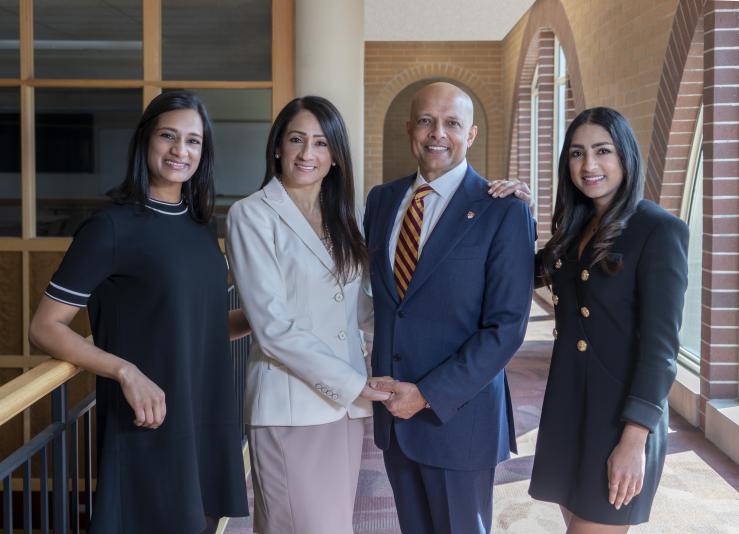Move-In Week at Dimond Family Residential Village

The first class of University of Denver students to the call the Dimond Family Residential Village home are now moved in. On Monday, the doors opened on the new first-year residential hall, the first of three buildings to open this academic year under DU’s Denver Advantage Campus Framework Plan.
The residential village has more than 250 rooms, which, at capacity, can house more than 500 students. Dimond has six different “houses,” all named after different species of trees — aspen, blue spruce, cottonwood, dogwood, elm and Douglas fir. The houses were created to form cohorts of students — a concept known to contribute to their long-term success while in college. The building is also divided into 21 different pods, each containing more than 20 rooms and a lounge. An additional dozen common and study spaces are scattered throughout the hall, and the Village Kitchen is located on the ground floor.
Construction of the residential complex, named after the Dimond Family Foundation following a generous $5 million gift, began in 2018. At that time, the University committed to hiring diverse businesses for major capital projects. This pledge resulted in minority-, women- and veteran-owned businesses, as well as small businesses, making up 35% of all business participation in the Dimond project. DU’s Burwell Center for Career Achievement, also opening this fall, has 28% diverse business participation. And the new community commons, scheduled to open early next year, has 20% diverse business participation.
“This intentional effort resulted in each project exceeding their 15% goal of diverse businesses, and it did not come at a premium, as all of the awards were to the low bids,” says James Rosner, associate vice chancellor of facilities management and planning. He says the effort to attract more diverse businesses now extends to smaller projects, which make up most of DU’s active projects.
“These projects are really where DU makes a difference as an anchor institution, where the combined economic impact of these projects totaled $30.1 million for these businesses, and we are able to bring in smaller and more local contractors for the majority of projects,” Rosner says.
The residential village also reflects a deep commitment to sustainability. Rooftop solar has been incorporated into the construction. The six different houses are individually metered, allowing for energy-use competitions among students. The building is also on track for LEED Gold certification.
The building is full of features that make it singular. Inside, concrete columns have been deliberately chipped to create a durable finish that will withstand move-in days for years to come. The fourth-floor bridge connecting the facility’s two wings boasts a critical design element: a tree trunk-like appearance, with the fretwork of the windows becoming a multistory canopy complete with a “tree house spot.” Also, a “workers wall” features the names of the 800 people who contributed to the building’s construction. The names of every architect, carpenter, flagman and facility employee will be displayed alphabetically.









